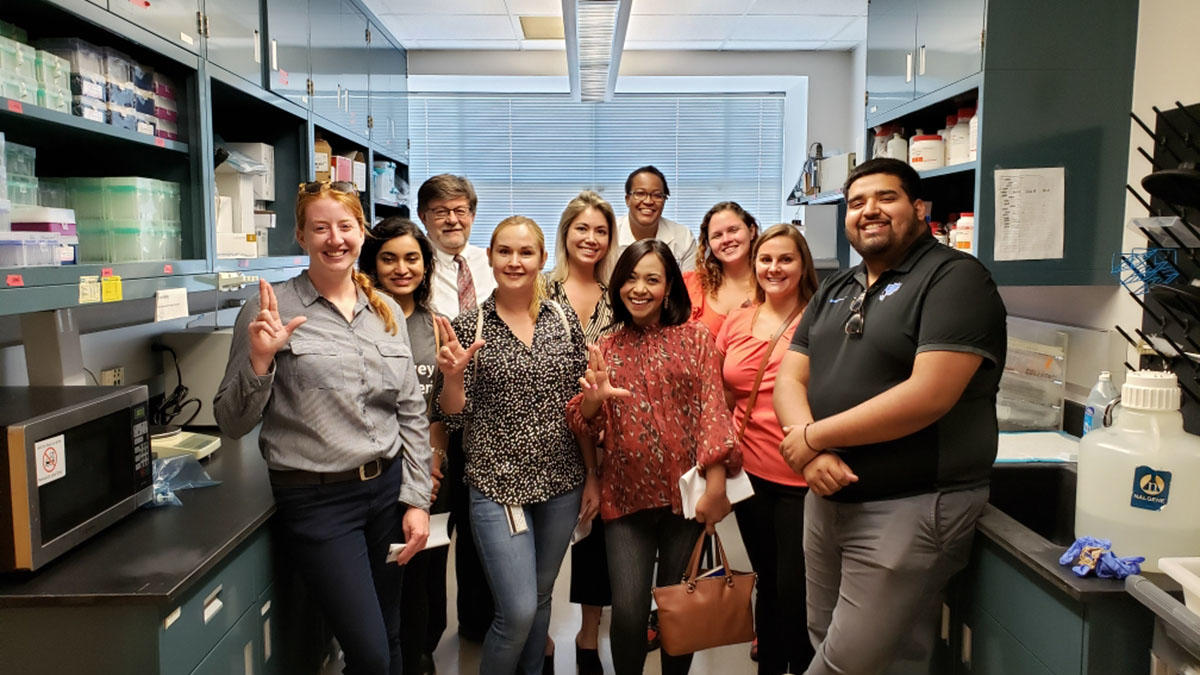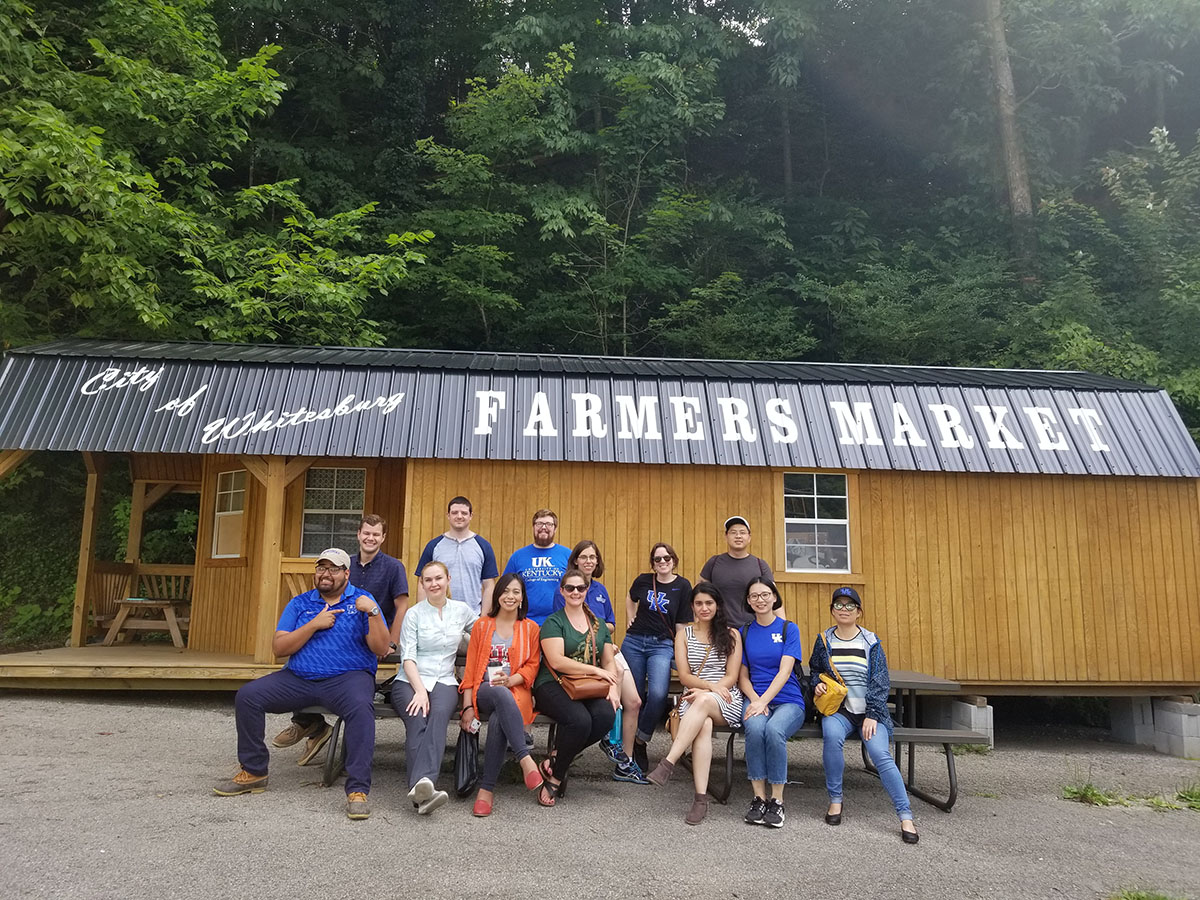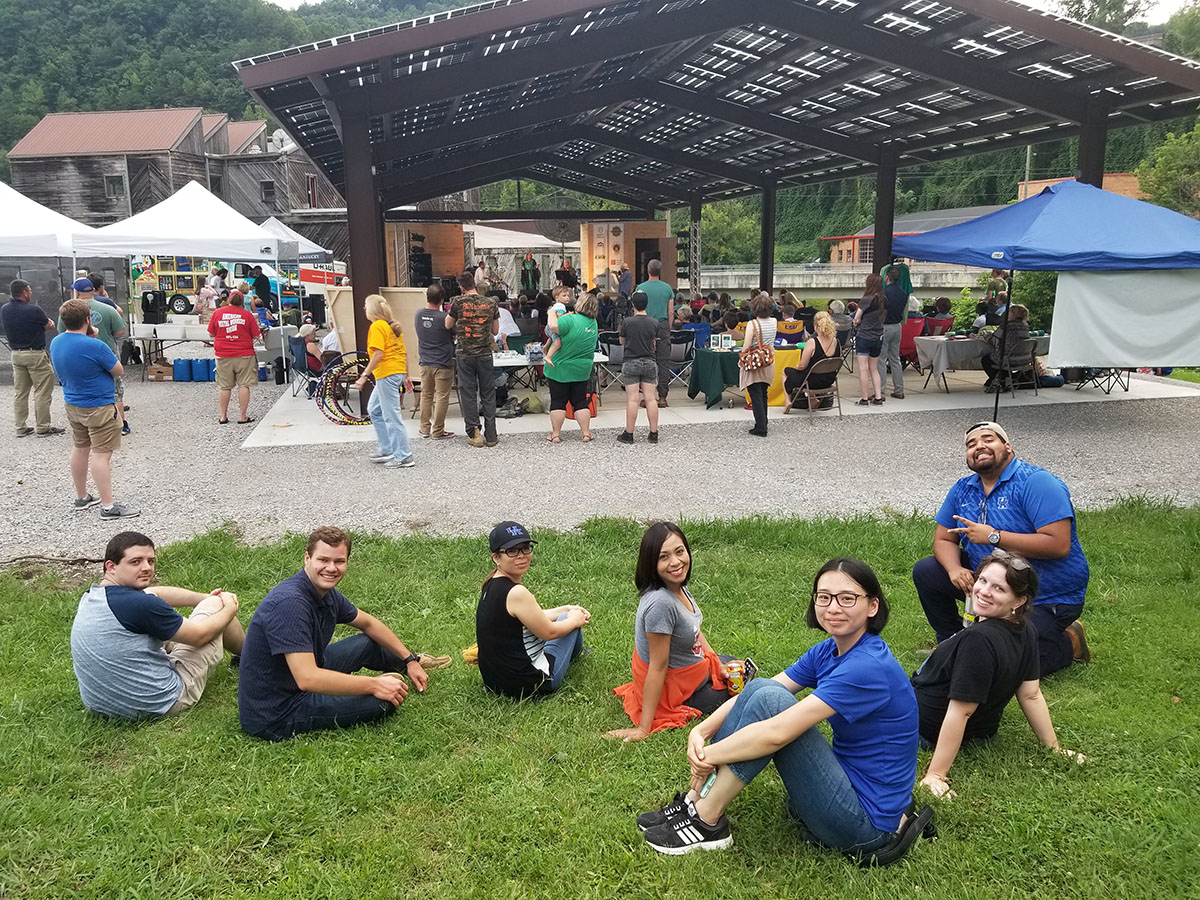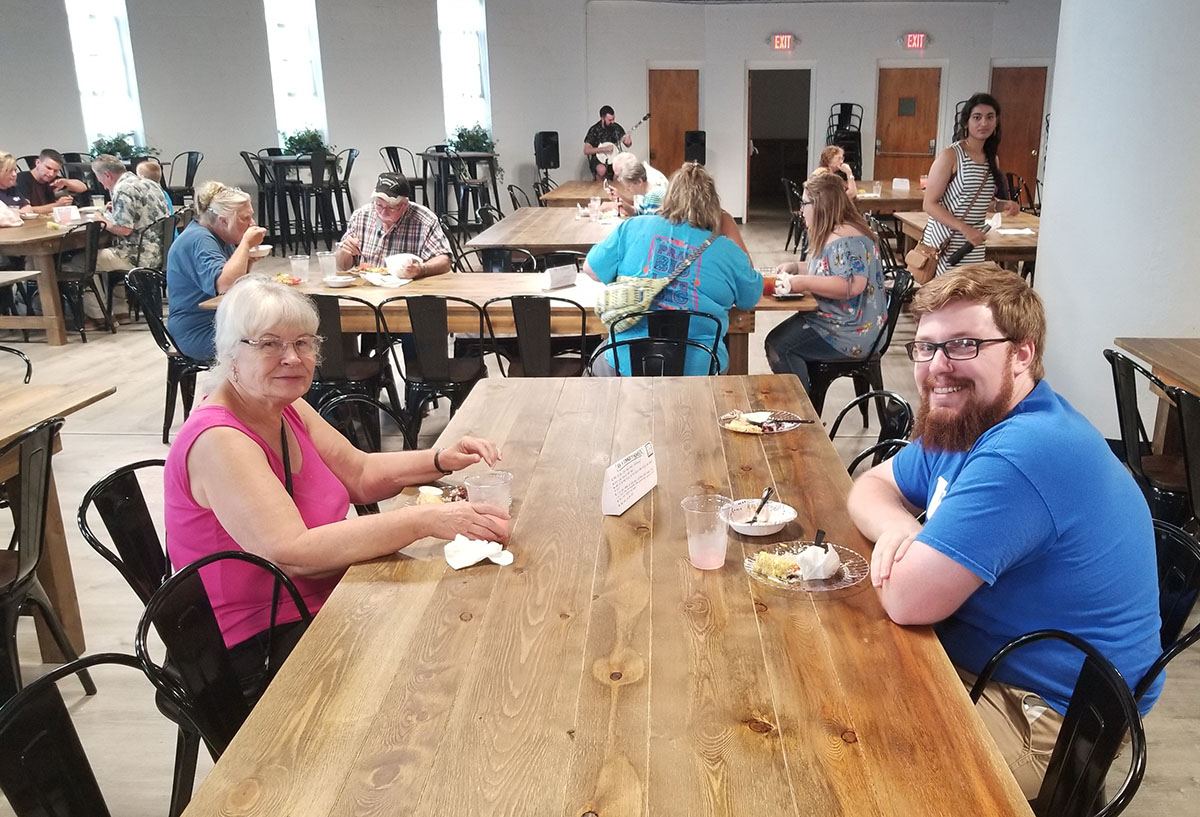On July 10-11, 2019, the University of Kentucky Superfund Research Center (UK SRC) hosted trainees from the University of Louisville Superfund Research Center for a two-day event that included information exchange among trainees from both centers, group presentations and discussion, tours of some of UK’s labs and a full day visit to Whitesburg, Kentucky, where the UK SRC’s Community Engagement Core (CEC) has worked for many years. Trainees from both centers attended, and the group was led by Dawn Brewer, leader of the UK SRC’s CEC, UK SRC CEC program manager Annie Koempel and Whitesburg community leader Valerie Horn. Other key people who were instrumental in organizing this unique and educational event included Bernhard Hennig, director of UK SRC and leader of Project 1, Zach Hilt, leader of the UK SRC’s Training Core and leader of Project 4, UK SRC Project 4 graduate trainee Molly Frazar, and Kelly Pennell, assistant director of UK SRC.
In Whitesburg, the group made stops at several local establishments that are committed to building a strong community and providing opportunities for nutritional education and access to healthy foods. They had lunch at CANE Kitchen with kids attending Headwaters on the Creek Camp, visited Appalshop for a tour and short film about Kentucky waterways, joined community residents for dinner at CANE Kitchen, shopped at the Letcher County Farmer’s Market and enjoyed live music from the Levitt AMP Whitesburg Music Series.
The National Institute of Environmental Health Sciences’ Superfund Research Program has a strong history of seeking opportunities to work with communities and share research findings with communities and community-serving organizations. This immersive experience gave trainees from both NIEHS-funded superfund centers the opportunity to engage with community stakeholders and consider how their own scientific research can be translated into meaningful outcomes for communities.



